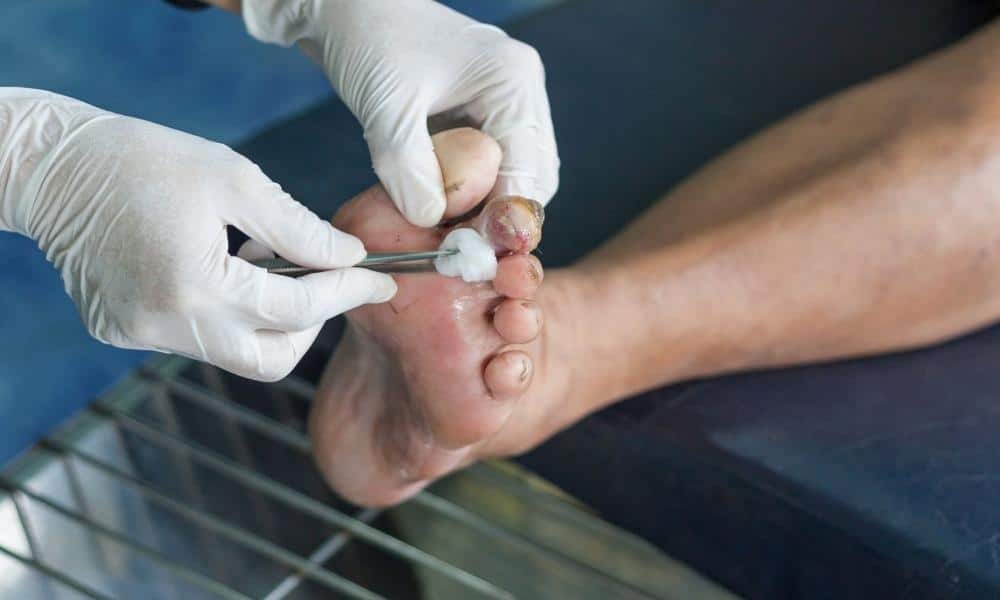
You’re pregnant – Congratulations!
Being pregnant is an exciting time but it also throws up certain concerns that you may want answers to or reassurance. One common concern is varicose veins and whether you’re likely to get them during pregnancy.
If this is your first pregnancy then obviously you’ve nothing to compare it to. But if you have close family members that have the condition, you may be wondering whether varicose veins are likely to come your way.
There is indeed an increased risk of developing varicose veins if your mother or sister had them when they were pregnant. It’s also known that pregnancy can increase the risk of varicose veins.
But the good news is that there are things you can do to try and prevent them.
Before going further, let’s take a quick look at what varicose veins are and what causes them to develop during pregnancy.
What are Varicose Veins?
Varicose veins usually appear on the legs, are blue or purple in color, and bulge or twist. You can feel them just below the surface of the skin.
Veins rely on leg muscles and one-way valves to propel blood back to the heart. But should they weaken and not function properly, the result is a build-up of blood in the veins which places extra pressure on them and causes the walls of the veins to bulge.
Pregnancy causes many changes to a woman’s body, some of which can cause varicose veins. These include:
- Increased blood – The volume of blood in the body increases during pregnancy and when this happens it places more of a strain on the valves and walls of the veins.
- Progesterone – This hormone also increases during pregnancy, which in one way is a good thing because it’s essential for a healthy pregnancy, but on the downside it causes the veins to relax. It’s harder for blood to move through relaxed veins and as things slow down and blood builds up, the pressure inside the veins increases and causes them to swell.
- Pressure from the uterus – As the fetus grows inside the uterus it pushes it against the blood vessels and organs in the lower abdomen. Blood is moved from the veins in the legs to pelvic or lower abdomen veins before returning to the heart. As a result, pressure placed on the pelvic veins from the uterus prevents the blood from flowing freely out of the legs.
So now you have a better understanding of why you could get varicose veins when you’re pregnant, here are 7 tips that can help you try and avoid that happening.
#1 Keep Mobile
We know it’s harder to move around when you’re pregnant – you feel tired and your growing abdomen gets in the way. However, you need to stay mobile and move your legs so that the muscles can pump the blood out of them.
#2 Watch your Weight
While your unborn baby’s nutrition is important when you’re pregnant, it doesn’t mean that you have to eat for two, but you do need to pay attention to what you’re eating. Naturally, a certain amount of weight gain should be expected but do try and avoid this happening too early in your pregnancy. Increased weight puts more pressure on your veins. So ty and avoid sugary foods and instead, eat a healthy well-balanced diet of fresh fruit and vegetables, fish, lean meat, and grains.
#3 Elevate your Legs
Throughout the day try and raise your legs above your heart whenever possible – gravity helps blood to drain from your legs. If you stand a lot during the day, try and raise your legs when you have a break. If you’re at home resting in bed or laying on the sofa, place a pillow under your feet to help the blood drain.
#4 Wear Support Hose
Thigh-high compression stockings or supportive panty-hose applies pressure to the outside of your legs which, in turn, counteracts the pressure occurring within the veins and prevents them from bulging. You can wear them all day but remember to take them off when you go to bed at night.
#5 No High Heels
High heels prevent the leg muscles working which retains blood in the veins. Try and wear shoes with a low heel during the day and save your high heels for special occasions.
#6 Don’t Cross Your Legs
Try to avoid crossing your legs as this stops the blood from moving out of the veins, increasing the pressure within them.
#7 Sleep on Your Left Side
Some doctors will advise you to sleep on the left when you’re pregnant. Why? Because your liver is located on the right side of your body, sleeping on your left keeps your uterus away from it. It also improves blood circulation to the heart and allows for the best flow of blood to the fetus, uterus, and kidneys. You can always ask your doctor what they recommend.
If you want to try and avoid developing varicose veins while you’re pregnant, then bear in mind that many of the things we’ve suggested you do will also help relieve varicose vein symptoms. However, there is a chance that you could develop varicose veins even if you try everything you can to prevent them.
It’s not all doom and gloom, however.
Most varicose veins that occur in pregnancy normally disappear of their own accord within around 3 months of giving birth. And even if they don’t, we provide a comprehensive range of contemporary and proven non-surgical treatments that will alleviate any discomfort or unsightly veins.
Don’t put up with unsightly varicose veins. Come and talk to Dr. Goke Akinwande and his friendly team, to see how they can help. Book a consultation with the Midwest Institute for Non-Surgical Therapy (MINT) today at one of our 5 clinics, including the latest addition in Chicago, IL.



